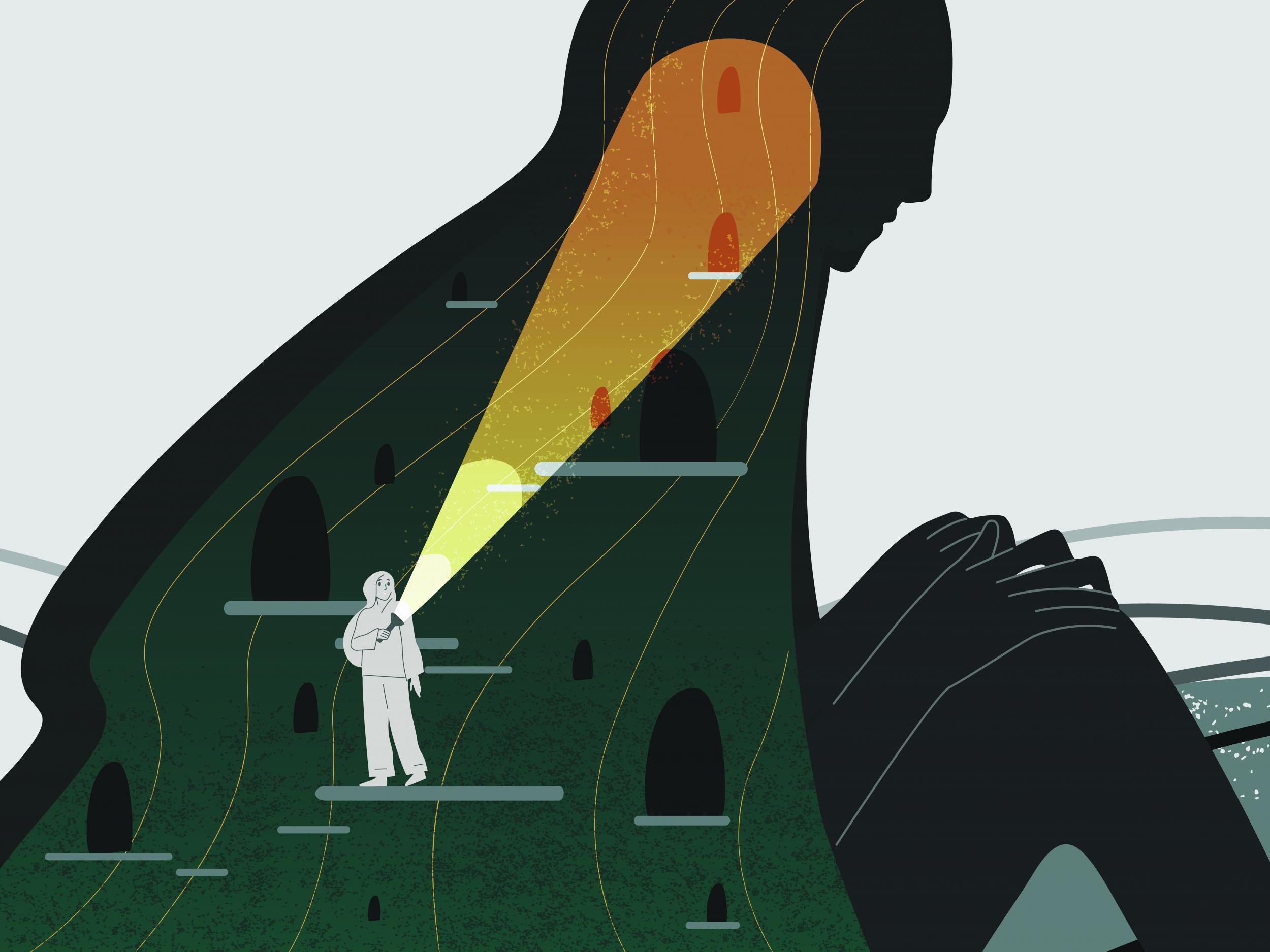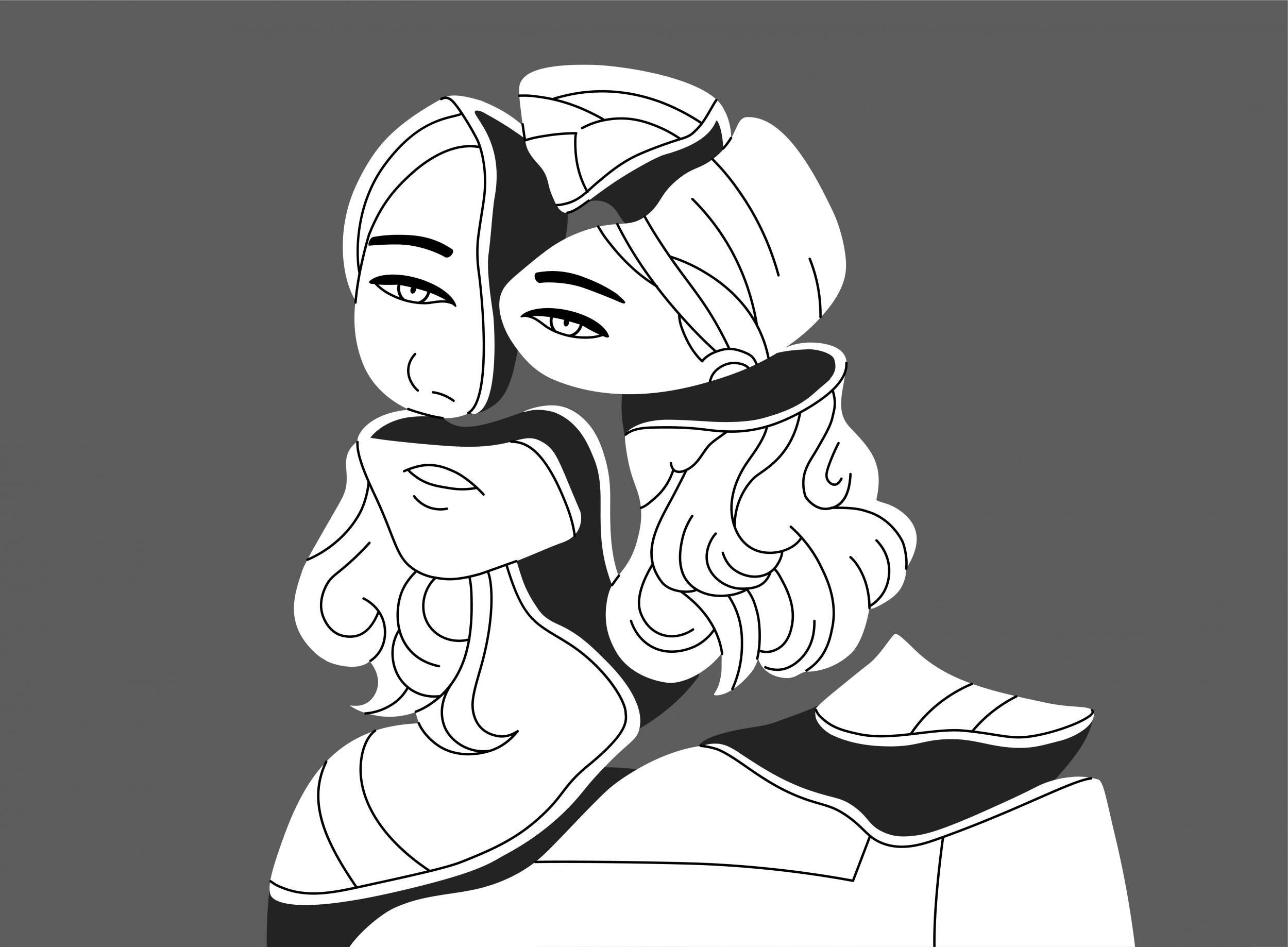‘I withdrew from my friends, switched off my phone, shut out the world’
Depression can happen to anyone – in fact, one in four people will experience a mental health problem. Julia Southern-Wilkins reveals how she found her way out of the darkness

I have never been brave enough to publish something I have written online before, though have always admired those who are. It is scary because, a) people that you know will see it, and b) you are basically claiming that your ramblings and musings are important enough to be transmitted via a public forum. This time feels different: although I am unconvinced that my perspective on the topic of mental health is of particular significance, there is the off-chance that someone will read this and find it useful or uplifting in some way.
Most people who know me will be aware that over the past five months or so, I have experienced quite a severe mental health crisis. It feels strange to name it as such; I could not admit to myself the reality of what was going on all throughout its duration, despite doctor’s diagnoses and some pretty blatant symptoms. However, it would be unfair on the people who had to see me go through it to diminish what happened.
Depression is what happened. In Michaelmas term of last year, depression caused me to retreat into myself, saying fewer and fewer words, and talking to fewer and fewer people, until I was saying nothing at all. Almost everyone who spent time with me noticed this. They asked me what was wrong, the reason I was so quiet; I always brushed it off, attempting not to hear (this does not work) or to deflect the question (this does work, more often than you would think). I could not answer it honestly, as I myself was not sure.
Oddly, depression not only caused my speech and conversation faculties to disappear, but also my reading and writing skills – every time I read a sentence, however simple and easy to understand, it would go straight over my head, and a second later, I would be unable to recall what it had said. I would spend half an hour composing a short text message; I would watch an entire film, and at the end be none the wiser to its plot or any of its characters. Understandably, this made my university work, challenging at the best of times, absolutely impossible.
As a result, I felt increasingly uncomfortable in my position at what we all know to be an intensely high-pressure university. I felt that I did not deserve to be there, that I had somehow fooled everyone into believing I was intelligent and capable (the classic imposter syndrome rearing its ugly head). The pressure to get on top of various areas of my life increased; I responded by becoming increasingly incapable of handling it. I remember waking up in my university room feeling utterly frozen with panic. I knew that I could not return the following term. I was desperately unable to continue the way things were.

Instead of speaking to somebody who could help me identify the problem, I came home from university, and, though I will not divulge all of the details, essentially then did not move again for several months. My family, not having lived with me since the summer, were shocked and perplexed. Every single decision, be it tiny and inconsequential, or large and life-altering, had become completely impossible – my “coping mechanism” was to bury my head in the sand, thus not making any decisions at all.
So, I stayed at home, and “decided” (though not a decision in the traditional sense) not to return for Lent. I withdrew from all of my friends, switched off my phone, shut out the world. The only people I saw were my parents, and my sisters who would come home to see me at weekends. I did not consider how long this would last, or how I would one day go about detangling myself from this terrible mess. Those things did not seem to matter much.
You can believe that you are the only one who feels like this, that everybody else is moving on with their lives, leaving you behind
Every single one of my family and friends were absolutely incredible. I cannot fault any of them. I wish I could hug every person who reached out to me; unfortunately, this whole “global pandemic” thing prevents me from doing so. They were admirably tenacious, ignoring my dead silence and continuing to send me their love and kindness and support from afar. A few even came to my house to see if I was there. I was unable to engage with what anyone was saying to me, let alone respond in a meaningful way, so the times that I did see people must have been quite alarming for them. I was beginning absently to notice some fairly disturbing things: that I could not remember the last time I had said a full sentence, or experienced a full thought. That I was feeling less physically healthy too – but I did not seem to care.
However, this leads me to my first point.
1. Sometimes you have to hit rock bottom before you can begin to climb back up
It is a well-known cliche that, sometimes, hitting rock bottom can be the necessary starting point for your recovery #journey. There is something incredibly empowering about it: at this point, nothing anyone can say can possibly hurt you, as you have said it all to yourself already; and nothing can really get worse now, only better. And, in the immortal words of Miley Cyrus: “It ain’t about how fast I get there, it ain’t about what’s waiting on the other side… It’s the climb.”
2. Something is better than nothing
It is difficult for a healthy person to understand, but for someone who is unwell, sometimes replying to a message is an impossible task. Nonetheless, I have learnt that any small step is a step in a positive direction, and worth attempting. Sending someone a message reassuring them that you are alive and okay is better than saying nothing. Going for a short walk is better than not moving, eating one healthy meal is amazing, and both will make you feel a million times more alive. Paint your nails, listen to a podcast or some music, talk to your family, let them talk to you, cook a meal, go outside.
3. You are not alone
Depression does not discriminate in whom it decides to affect. I never, ever imagined that it would happen to me
Depression can produce an incredibly lonely state of mind. You can believe that you are the only one who feels like this, that everybody else is moving on with their lives, leaving you behind. However, this is not true. It is a fact both comforting and sad that almost all of us, at some point in our lives – be it depression, anxiety, panic attacks, grief, eating disorders, or post-natal depression – will go through periods of poor mental health. It is sad because in an ideal world, life would not be like this. But it is comforting, too: whatever it is that you are going through, it is likely that somebody else has experienced the very same thing.
4. It can happen to anyone
Depression does not discriminate in who it decides to affect. I never, ever imagined that it would happen to me. It is also not always obvious when somebody is going through it. I experienced low-functioning depression: it was quite clear to anyone who saw me that things were not right. However, in some cases, people can go about their lives as usual, presenting a face of normality to the outside world. These are the people most in need of help, as few near them may realise that they are going through a hard time.

And, finally...
5. It can get better
Things can, and will, get better. But crucially, in order for things to improve, you have to want them to improve first. Nothing will change if you do nothing to change it. You will care about things again, you will enjoy things again, you will make good decisions again. Sometimes it just takes a bit of time and a lot of effort. But it is not too late, it is worth it, and – regardless of how badly you feel, or what you believe you have done wrong – you are worth it.
I hope that this article will reach across the internet void and touch maybe even one person who is struggling. If it does, then posting it – laying everything bare to potential public humiliation and ignominy – will feel worthwhile. Every day feels lighter and brighter for me; in the words of my dad, it’s like the “lights have been switched back on”. As a result, I want to make myself available for anyone who could use my help, even just by lending a listening and non-judgemental ear. My inbox is open.
I leave below some links to articles and websites to access if you are in a bad place.
SANE is a helpline you can call if you need somebody who can listen.
Psycom provides objective information about the types of depression.
The NHS website should be your go-to place if things have become out of your control and you are in need of help.
Join our commenting forum
Join thought-provoking conversations, follow other Independent readers and see their replies
Comments
Bookmark popover
Removed from bookmarks